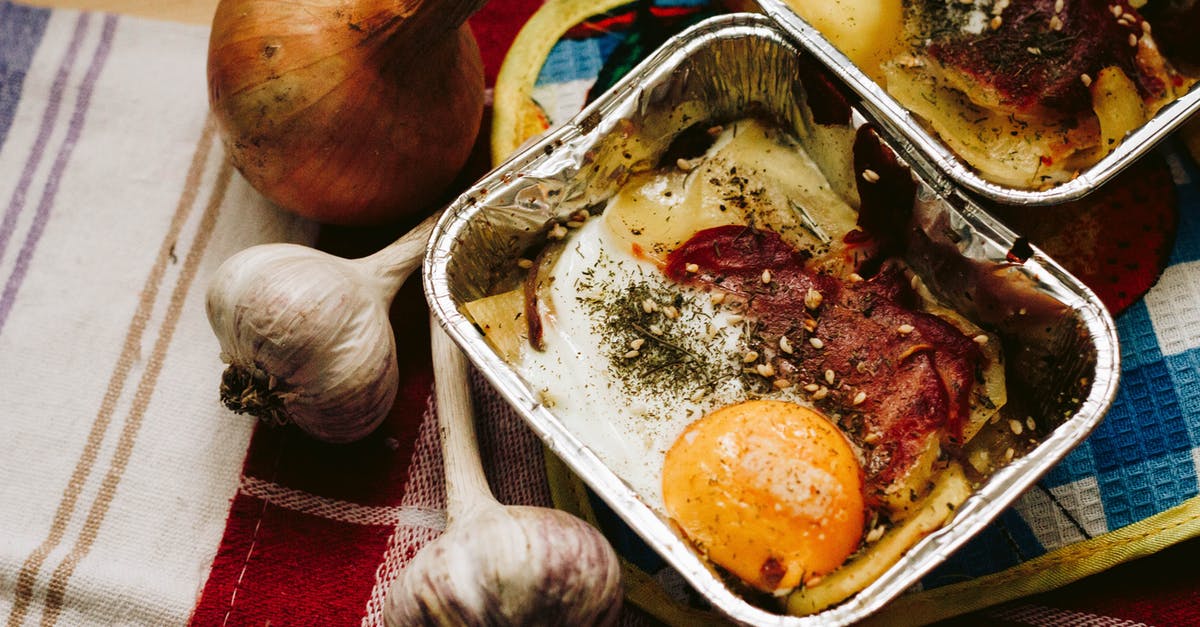What kind of foods react with aluminium pressure cookers?

While researching about pressure cookers, I found a comment in a review that says:
As with all aluminum pressure cookers, the metal will react with some foods and can overheat if you are not careful [...]
This is news to me. Further research seems to mention only a couple of salient points:
- Aluminium is very reactive in general
- Acidic foods may react in a pressure cooker
Since I don't see myself puting lemons or tomatoes in a pressure cooker, I'm really at a loss as to why this could be an issue.
What foods commonly react in an aluminium pressure cooker, and what do I do about it?
Best Answer
Aluminum isn't exactly toxic or harmful to the same degree as lead, but it's not exactly good for you either. And as you've identified, aluminum is fairly reactive. Higher acidity, salinity, and cooking time will all contribute to further reaction and absorption in any aluminum cooking vessel (or utensils for that matter).
This is an issue for three primary reasons:
- Absorption of aluminum is, as noted above, not necessarily healthy.
- Absorption of aluminum can result in a metallic flavor in your food, which is generally unpleasant.
- Absorption of aluminum into your food also corrodes the cooking vessel.
That third is probably of the most concern here, since you're talking about a vessel that's under pressure when in use. Sufficient corrosion and the resulting structural weakness could (in very rare cases) cause a rupture and sudden pressure release, i.e. hot stew explosion. This would take a long while to occur, and you'd almost certainly notice the corrosion on the inside of your vessel before it became truly dangerous, but this type of problem is exactly why modern pressure cookers have such fancy pressure-sensitive locks and come with warnings all over them. They can pop if abused, and they do this in your kitchen, possibly while you're nearby.
So, extended cooking of certain acidic items (what if you wanted to make, say, tomato sauce in your pressure cooker?) could be dangerous with long-term use, hence the warning. Such foods will also contain more aluminum than they would otherwise, and taste like it as a result. Here's a thread with information on the general pH levels of common foods, which may help you identify specific items of concern.
Another good way to avoid this is to select a stainless steel model instead of aluminum. Stainless is more expensive and doesn't heat up as quickly, but it's not as reactive as aluminum either, so there's less concern when cooking acidic ingredients over a long period. Here is a decent buying guide with comparison of features and some more specific recommendations.
Pictures about "What kind of foods react with aluminium pressure cookers?"



What foods should not be cooked in a pressure cooker?
Ingredients to Avoid Using in the Instant Pot- Breaded meats. Even when placed on a rack, breaded meats or vegetables are not recommended due to the fact that the breading will get soggy as the pressure cooker cooks with steam. ...
- Delicate Cuts of Meat. ...
- Quick Cooking Dishes. ...
- Bread. ...
- Cookies. ...
- Thickeners.
Is it safe to cook in an aluminum pressure cooker?
The overwhelming likelihood is that using an aluminium pressure cooker will be absolutely fine. Manufacturers wouldn't continue to make them if they were damaging people left, right, and centre.Which cooker is best stainless steel or aluminium?
Stainless is becoming more popular, as it's more durable and its finish looks shiny and new for years. It does, however, tend to be a little more expensive than aluminum cookers and the material isn't as good of a heat conductor. Aluminum, on the other hand, is an excellent heat conductor.Does pressure cooking affect food?
Or maybe it does? Some studies suggest that pressure cooking destroys nutrients, but there is far less evidence against pressure cooking as there is for it. One study showed that pressure-cooked food lost more antioxidant activity than food cooked by other methods, including microwaving and baking.Are Aluminium pressure cookers safe?
More answers regarding what kind of foods react with aluminium pressure cookers?
Answer 2
Aluminium may mix into the food if heated for a long time and lot of metals do. I always cook in aluminium pressure cookers with stainless steel containers inside so that will serve both purposes or using aluminium for getting high temperatures and also not contaminating the food since it doesn't directly get in contact with the food.
Sources: Stack Exchange - This article follows the attribution requirements of Stack Exchange and is licensed under CC BY-SA 3.0.
Images: NastyaSensei, Alex Green, SHVETS production, Angela Roma
